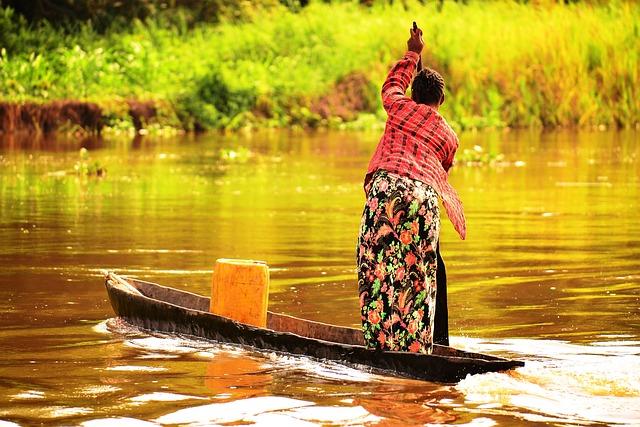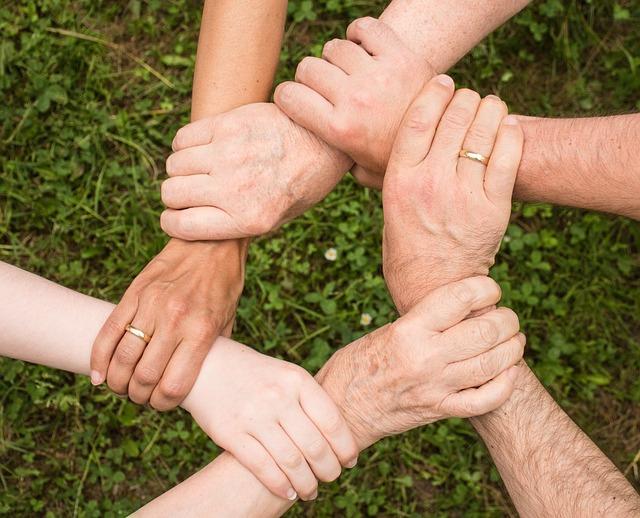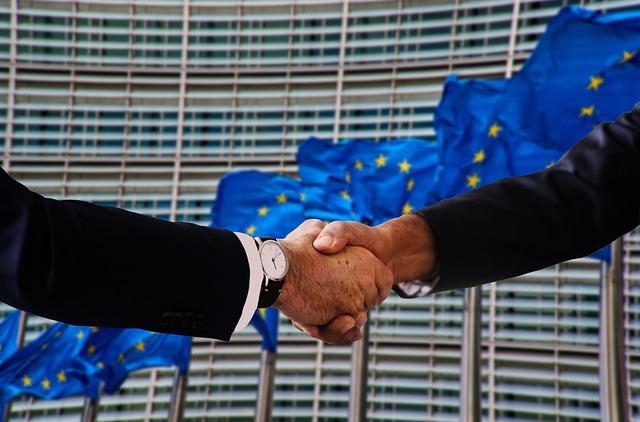In a notable escalation of political tensions in Uganda, Kizza Besigye, a prominent opposition figure and veteran politician, has been formally charged with treason, igniting widespread concern over teh state of democracy in the East African nation. Besigye, a long-time critic of President Yoweri Museveni’s administration and a four-time presidential candidate, now faces serious allegations that could have profound implications for his political future and the broader opposition movement. This development occurs against a backdrop of increasing crackdowns on dissent and growing public discontent, raising questions about the limits of political expression in Uganda and the implications for civil liberties in the region. as the case unfolds, observers are closely monitoring the potential ramifications not just for Besigye, but for the future of Ugandan politics.
Kizza Besigye’s Political Background and Legacy in Uganda
Throughout his lengthy political career,Kizza Besigye has etched his name into the annals of Uganda’s political landscape as a stalwart advocate for democracy and change. A former personal physician to president Yoweri Museveni, Besigye’s journey into the realm of politics began in the late 1990s when he became an outspoken critic of the NRM government, accusing it of authoritarianism and human rights abuses. His transition from military to civilian life, marked by armed struggles and cooperative politics, reveals a man committed to the ideals of better governance and accountability. Key milestones in his political career include:
- Co-founding the Forum for Democratic Change (FDC) in 2004.
- Running for president multiple times against Museveni, most notably in 2001, 2006, and 2011.
- Facing numerous arrests and harassment, which have underscored his resilience and commitment to his political ideals.
Besigye’s legacy is a profound mix of advocacy for civil liberties and political reform, encapsulating the aspirations of many Ugandans yearning for systemic change. his ability to galvanize support, particularly among the youth and urban populations, has fostered a political consciousness that challenges the long-standing status quo. The controversies surrounding his activities,especially recently with treason charges,highlight the ongoing struggle between state power and political dissent in Uganda. significant aspects of his enduring influence include:
| Aspect | Impact |
|---|---|
| Political Mobilization | Inspired a generation to engage in politics and activism. |
| Human Rights Advocacy | Highlighted abuses, sparking national and international awareness. |
| Challenging Authoritarianism | Questioned Museveni’s legitimacy,drawing attention to democratic deficits. |
Understanding the Charges: Examining the Allegations of Treason
The allegations surrounding Kizza Besigye’s treason charges stem from a complex interplay of political dissent and civil unrest within Uganda. As a prominent opposition figure,Besigye has been a vocal critic of President Yoweri Museveni’s long-standing regime. The government’s accusations suggest that his actions threaten national stability, resulting in grave legal repercussions that carry significant penalties. Critics, however, argue that these charges are politically motivated, aimed at stifling dissent and undermining the opposition. The tension in Uganda, evident through a surge in protests and public outcry, raises critical questions about the use of treason laws in suppressing political competition.
Legal experts and political analysts have noted several factors that contribute to the contentious nature of the case, including:
- History of Political Repression: Uganda has witnessed a pattern of arrests and intimidation of opposition leaders, suggesting a systematic approach to quash dissent.
- Public Sentiment: Besigye’s support among the populace indicates widespread discontent with the current regime, further complicating the narrative surrounding his charges.
- International Observations: Global human rights organizations have raised concerns over Uganda’s handling of political opposition, calling for openness and fairness in legal proceedings.
To contextualize Besigye’s case, a brief overview of treason laws in Uganda highlights the serious implications of such charges. Below is a simplified comparison of potential consequences based on the severity of these allegations.
| Charge Level | Potential Consequences |
|---|---|
| Conspiracy to commit treason | Up to 10 years imprisonment |
| Acts of treason | Death penalty or life imprisonment |
The Implications of the Case for Uganda’s Political Landscape
The recent treason charges against Kizza Besigye, a prominent figure in ugandan politics, mark a significant turning point in the nation’s political discourse. As a long-time opposition leader and a vocal critic of the ruling party, his arrest has ignited widespread protests and unrest across the country. This situation has underscored the fragility of political freedoms in Uganda,leading many to speculate on the potential ramifications for both the governing authorities and the opposition. The implications could be profound,as Besigye’s case highlights the ongoing struggle for democracy and human rights in the region. Key concerns include:
- Public Reaction: Mass protests have emerged, suggesting that public sentiment might potentially be shifting against the current regime.
- Opposition Unity: Besigye’s charges might galvanize opposition parties to unite in their agenda against the government.
- International scrutiny: The case has attracted the attention of human rights organizations, perhaps impacting Uganda’s foreign relations.
Moreover, the handling of this case could set a precedent for how future dissent is treated in Uganda. The government’s response may either escalate tensions or lead to a potential dialogue with opposition leaders, determining the country’s political trajectory for years to come. Analysts are particularly keen on observing:
| Factor | Potential Outcome |
|---|---|
| Public Protests | Increased dissent against the government |
| Opposition Response | Formation of a cohesive coalition |
| International Reaction | Pressure for democratic reforms |
Public Response and Support: The Role of Civil Society in Besigye’s Defense
The public response to Kizza Besigye’s treason charges has sparked a wave of activism across Uganda, with civil society organizations at the forefront of coordinating support efforts. Thousands of citizens have taken to the streets, expressing their solidarity through peaceful protests and social media campaigns.The outcry reflects a broader discontent with the current political climate, where many Ugandans feel that dissent is systematically suppressed. Prominent civil society groups have emerged as crucial players in defending Besigye, mobilizing resources and offering legal assistance to ensure his rights are protected. This support network not only advocates for Besigye‚Äôs case but also raises awareness about the implications such charges have for democracy in Uganda.
Furthermore,the role of civil society in this political crisis underscores the dynamic nature of citizen engagement in governance. Key initiatives include:
- Public awareness campaigns aimed at educating citizens about their rights and the underlying political issues.
- Legal workshops providing training for activists on how to navigate the legal system in defense of political freedoms.
- Solidarity events,including rallies and vigils,that amplify the call for justice and accountability in the face of alleged governmental abuses.
Through these efforts, civil society not only champions Besigye’s cause but also empowers Ugandans to stand against perceived injustices, fostering a culture of engagement that is essential for the health of the nation’s democracy.

Recommendations for Upholding Democratic Principles in Uganda
To ensure that the principles of democracy are upheld in Uganda, it is indeed imperative to foster an habitat conducive to political inclusion and active citizen participation. firstly, empowering civil society organizations plays a crucial role in advocating for human rights and political freedoms. Government should support rather than hinder these organizations to build a more robust democratic landscape. Secondly, enhancing electoral integrity through transparent processes is vital. This can be achieved by regularly auditing electoral commissions and allowing independent observers during elections to ensure fair practices.
Additionally, promoting freedom of the press is essential to guarantee that diverse voices and opinions are heard in the public sphere. Media should be protected from censorship and intimidation to facilitate unbiased reporting. Furthermore,establishing dialogue platforms that include opposition parties and civil society can aid in fostering understanding and collaboration among different political stakeholders. Lastly, a commitment to judicial independence will enable the judiciary to act as a guardian of the constitution, ensuring that laws uphold democratic values and protect individuals from unjust accusations such as treason.

The International Community’s Role: Advocating for Human Rights and Justice
The ongoing case of Kizza Besigye serves as a critical reminder of the international community’s profound obligation to advocate for human rights and justice across the globe. As a prominent figure in Uganda’s political landscape,Besigye’s treason charges raise alarms about the deteriorating state of democratic norms in the country. The international community,including organizations such as Amnesty International and the European Union,has a duty to amplify calls for transparency and accountability in judicial processes. By voicing concerns regarding political repression and urging the Ugandan government to adhere to its human rights commitments, these entities can create pressure that fosters an environment where justice thrives rather than falters.
Moreover,the involvement of the international community is paramount in mobilizing resources and support for civil society organizations dedicated to defending human rights. Countries worldwide must collaborate to ensure that oppressive regimes do not escape scrutiny or accountability. Initiatives that promote awareness, such as international sanctions, diplomatic engagements, and public campaigns, can serve as deterrents against human rights violations. Building a global framework that prioritizes human rights can empower local activists and provide them with the necessary tools to challenge abuses and foster a climate of justice. The stakes are high, and it is crucial that the world stands united against all forms of governmental overreach that threaten the very essence of human dignity.

Key Takeaways
the treason charges against Kizza besigye represent a critical moment in Ugandan politics, underscoring the persistent tensions between opposition forces and the ruling government. As a veteran politician and a long-time critic of President Yoweri Museveni, Besigye’s legal battles not only reflect his personal struggle but also signify the broader implications for political dissent and civil liberties within the country. Observers both domestically and internationally will be watching closely as the legal proceedings unfold, aware that the outcome could influence the future of political discourse in uganda. The case serves as a poignant reminder of the ongoing challenges faced by those who dare to oppose the status quo, raising important questions about democracy, governance, and the rule of law in a nation enduring political unrest.







